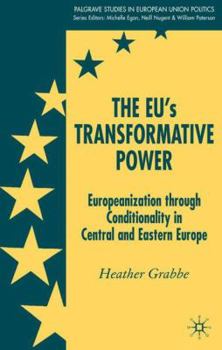The Eu's Transformative Power: Europeanization Through Conditionality in Central and Eastern Europe
Select Format
Select Condition 
Book Overview
Between 1989 and 2004, the EU's conditionality for membership transformed Central and East Europe. The EU had enormous potential power over the whole range of domestic politics in the candidate countries. However, the EU was able to use that power at a few key points in the process leading to their accession. The EU's long-term influence worked primarily through soft power and through voluntary rather than coercive means. During the membership preparations, the EU built many different routes of influence into the candidate countries' domestic policy-making through 'Europeanization'. The Central and East Europeans voluntarily took on the Union's norms and methods, guided by the European Commission, in a massive transfer of policies and institutions. However, the EU missed important opportunities to effect change as well. The EU's Transformative Power explores in detail how the EU used its influence to control the movement of people across Europe, through both coercive use of conditionality and voluntary methods of Europeanization.
Format:Hardcover
Language:English
ISBN:1403949034
ISBN13:9781403949035
Release Date:November 2005
Publisher:Palgrave MacMillan
Length:231 Pages
Weight:0.91 lbs.
Dimensions:0.7" x 5.5" x 8.8"
Customer Reviews
0 rating





